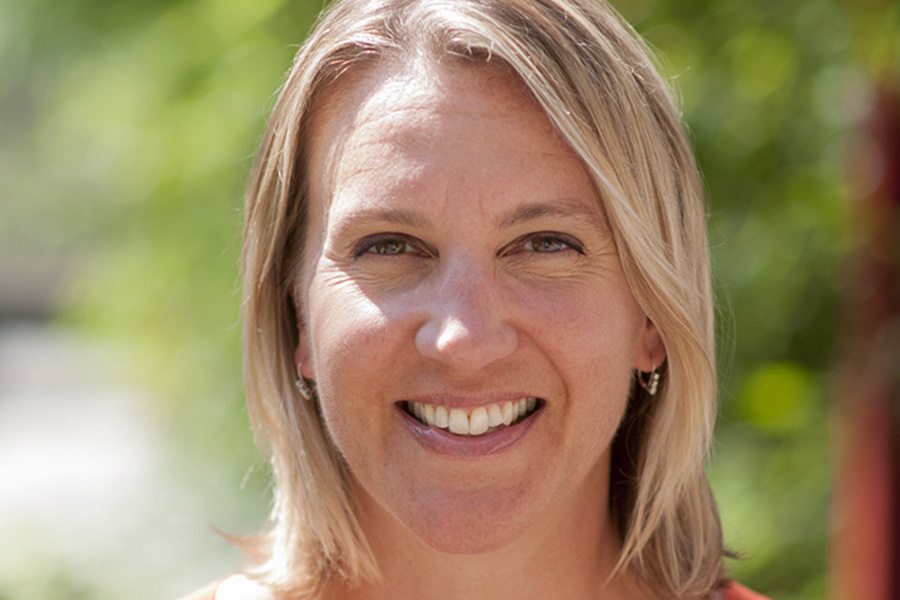
Five Questions with Elizabeth Gross
Alumna Elizabeth Gross sat down with us to answer our "5 Questions" about her journey to becoming her own boss
Elizabeth Gross (DC 1990) has been there. During her 24-year career in marketing and advertising, she faced many "between jobs" periods and knows that finding a new job can feel like a full-time job.
In 2017, the Dietrich College of Humanities and Social Sciences graduate put her Carnegie Mellon professional writing degree to work for herself and founded Job Search Divas, a company that offers a range of career-related services, including resume writing, job search strategies, networking skills and interview coaching and preparation.
Through Job Search Divas, Elizabeth helps clients manage all aspects of their job search journeys, making sure their experience and abilities are positioned as strongly as they can be and ensuring a more productive and rewarding job search. Utilizing her own job-hunting experiences, as well as her experience at Monster.com, she's assisted countless people with their resumes and job searches.
On Thursday, August 9, from 1-2 p.m. EDT, Elizabeth will lead a CMUConnect webinar, "Conquering Your Job Search Journey," to share her career search saavy and tips on how to find your next great job.
Elizabeth recently sat down with us to answer our "5 Questions" about her journey to becoming her own boss, the single most important thing you can do to get that interview and why negotiating your offer and departure is critical.
Q:How did your own career journey lead you to start Job Search Divas?
A: I started Job Search Divas in July 2017, after a 24-year career working in the marketing and advertising industries. Those businesses have a lot of change and financial ups and downs, and I've had my share of being between jobs. Those experiences allowed me to develop a strategy for how to position myself for a successful job search to land my next role. This involved [not only] being familiar with resume best practices and online search techniques, but also outlining a process for the search: what to do first, what resources to use, how to move forward. I used this strategy very successfully during my career, and I wanted to share it with more people and help others who might feel intimidated or overwhelmed with the idea of job searching.
Q: What have you learned during your first year as a business owner?
A: I'm calling this my "test and learn" year for so many reasons. I've had to figure out what services to offer and how to price them; what my value proposition is; how long it takes to complete deliverables like resumes and LinkedIn profiles; and how much business I can actually handle at one time. Although the company is called Job Search Divas, I'm the owner and sole employee, so I provide very personal service to clients. I had to figure out how to maintain that quality while also providing the deliverables in a timely manner.
Q: What is the single most important thing someone can do to improve their odds of getting an interview?
A: Make sure the platform for your job search is solid; that your resume presents your experience as strongly as it can and tells your career "story" in a concise, easy to understand way; and your LinkedIn profile supports the same story. They don't have to use the exact same language or be mirror images of each other, but your resume and LinkedIn should hang together so no matter how potential employers are finding candidates, yours stands out among the clutter.
Q: What job search skills will attendees gain from your webinar?
A: Finding a new job can feel like a full-time job. This webinar will offer a realistic plan for managing your search, including tips on staying organized, effective networking strategies and keeping the momentum going.
Q: What’s your own most embarrassing job search story?
A: I advise my clients all the time to "get what you want on the way in and on the way out." In other words, negotiate your job offer so you're getting what you need in terms of salary and benefits. And negotiate on your departure, too, if your company is downsizing or making shifts to their employee base. Ask for an extra week of severance, more health care coverage or reimbursement for continuing education. Unfortunately, I learned these things the hard way. Early in my career, I didn't ask enough questions about a company's retirement plan benefit structure, and it turned out I couldn't join the plan until I'd been with the company for a year, and then only at the next enrollment period. It ended up being 18 months before I could make my first contribution to the 401K plan, and I still kick myself today for not negotiating that before accepting the offer.
A recording of Elizabeth's webinar — as well as other past CMUConnect webinars — is available at our Webinar Archive.